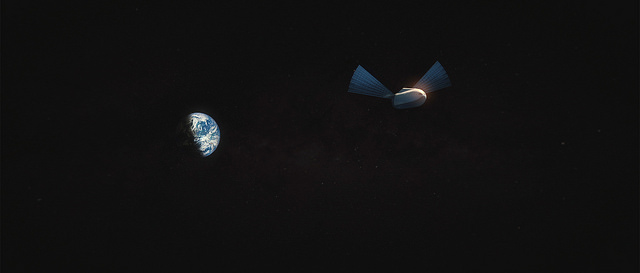SpaceX
Yes, we deserve to colonize Mars and keep our “light of consciousness”
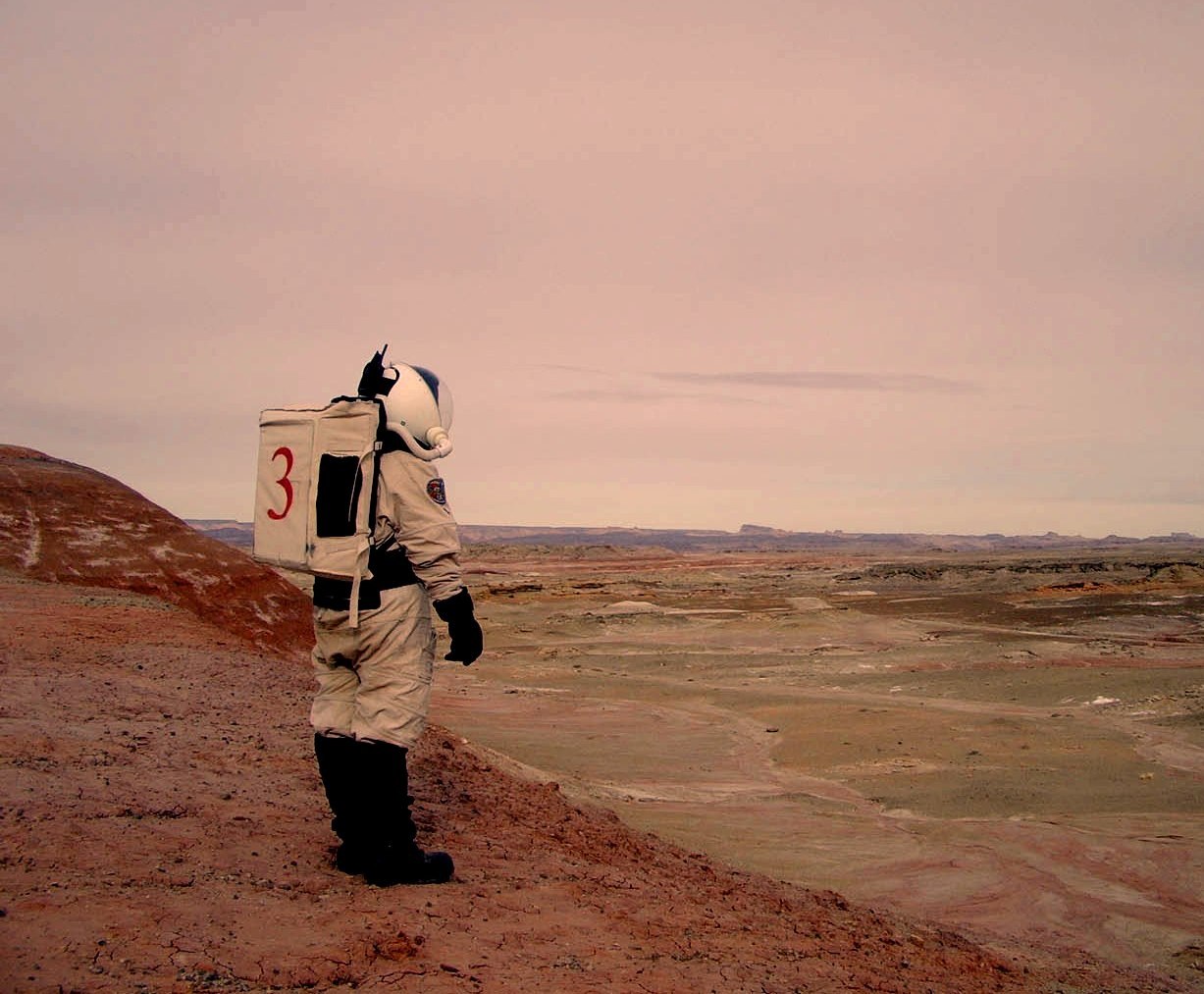
Elon Musk has spoken previously about having a duty to maintain the “light of consciousness” of humanity as the main rationale for multi-planetary habitation, or why we should colonize Mars specifically. It’s a pretty simple concept, really. Eventually the Earth will no longer be able to host human life as we know it, suffering from some sort of malady which will wipe out our species. Pick your poison: Asteroid attack, the Sun’s Earth-engulfing expansion, or even climate change. Something will bring us down, someday, unless we are proactive in our approach to survival.
Unfortunately, facts are fun things that don’t always help with solving problems (and annoyingly so), but it seems there’s also a crowd that doesn’t disagree with the facts and instead questions whether we even “deserve” to respond to them altogether.
In her recent TechCrunch article titled “The Ethics of Colonizing Mars”, Shivika Sinha cited Elon Musk, NASA, and the progress being made towards Mars and then asked the question, “Do humans deserve to be multi-planetary?”
 Her argument framed capitalism and consumerism as co-conspirators of our modern societal woes, and her conclusion was that we need to change our “parasitic” ways before exporting them to other planets in the universe. The whole argument was really just the human-shaming version of “fix Earth first”, a common objection to deep space colonization.
Her argument framed capitalism and consumerism as co-conspirators of our modern societal woes, and her conclusion was that we need to change our “parasitic” ways before exporting them to other planets in the universe. The whole argument was really just the human-shaming version of “fix Earth first”, a common objection to deep space colonization.
As a perfect, imperfect example of one of billions of humans on this planet, I will quite willingly admit that we are not a perfect species; however, I don’t understand why there’s so much guilt felt for merely existing in certain sects of society. It’s your choice whether to like who you are, but remember that you cannot live without living. You cannot stop pursuing the long-term survival of the species simply because you do not approve of its current state. Why aspire to be more if we are telling ourselves we are not even good enough to be such?
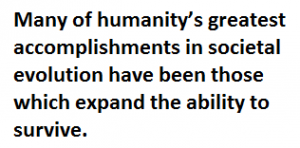 Behavior takes time to adjust. We do not live in a controlled, variable-limited scientific model society wherein our survival mechanisms are neatly categorized into “good” vs. “bad” choices. And more still, since when did survival become a question of worth? Many of humanity’s greatest accomplishments in societal evolution have been those which expand the ability to survive. Indeed, a huge part of compassion in our value system is the belief that everyone has the right to a life that is so much more than simply surviving. Given the consequences of not eventually going to colonize another planet, how does the logic compute that our species is suddenly not worthy of existence whatsoever?
Behavior takes time to adjust. We do not live in a controlled, variable-limited scientific model society wherein our survival mechanisms are neatly categorized into “good” vs. “bad” choices. And more still, since when did survival become a question of worth? Many of humanity’s greatest accomplishments in societal evolution have been those which expand the ability to survive. Indeed, a huge part of compassion in our value system is the belief that everyone has the right to a life that is so much more than simply surviving. Given the consequences of not eventually going to colonize another planet, how does the logic compute that our species is suddenly not worthy of existence whatsoever?
Sinha points to the flaws in our system which are in contradiction with the natural world, destroying it specifically, yet she doesn’t credit the source of the flaws to begin with: That same natural world. We were born in it, raised in it, and learned to survive based on those experiences. Somewhere along the line, we developed consciousness as a result of that process of surviving. We didn’t suddenly arrive on a beautifully balanced Earth ecosystem and begin sucking resources to feed our ravenous appetites. We fought hard to get here, and as an evolved species of this planet, we have the right to fight to continue to survive – just as every other living creature on Earth has done.
But that’s not the line of discussion I wanted to flesh out here.
Instead, I’d like to suggest that multi-planetary habitation is actually quite compatible with Sinha’s (and others like her) perspective because colonization is more than just a survival plan: It’s a tool for evolving our consciousness towards a value system which includes “conscious consumerism” by default.
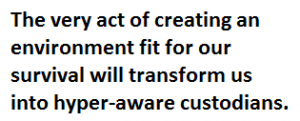 We evolved with the resources available in our Earth environment, and we’ve often taken them for granted because they were always there and available to us. When we take our species to colonize Mars, we will be doing just the opposite by transforming its environment to provide resources we need to survive. The very act of creating an environment fit for our survival will transform us into hyper-aware custodians. Every resource will be valued right down to the tiniest amounts measurable because even the most minute amounts will be important. Every action we take will have reactions that we must carefully calculate if we hope to survive.
We evolved with the resources available in our Earth environment, and we’ve often taken them for granted because they were always there and available to us. When we take our species to colonize Mars, we will be doing just the opposite by transforming its environment to provide resources we need to survive. The very act of creating an environment fit for our survival will transform us into hyper-aware custodians. Every resource will be valued right down to the tiniest amounts measurable because even the most minute amounts will be important. Every action we take will have reactions that we must carefully calculate if we hope to survive.
Taking the human race into deep space is so much more than “exporting” our consumerism once we’ve outgrown its birth place. It’s evolving who we are, increasing our awareness, and forcing us to understand the environments we will depend on and cannot risk taking for granted. We will be conscious of every choice we make as a matter of survival, and those lessons we learn in the early days of exploration will set the stage for the next phase of human colonization.
In the end, I think we’re all on the same page as far as long-term “colonize Mars” goals. The difference is simply in perspective. Taking our species to places like Mars isn’t an act based on some sort of contrived selfishness. It’s answering something we’ve had calling to us since the beginning of time: The stars. We came from them, and it’s to be expected that eventually we will want to return. Mars is the next step.
Onwards.
News
SpaceX launches Ax-4 mission to the ISS with international crew
The SpaceX Falcon 9 launched Axiom’s Ax-4 mission to ISS. Ax-4 crew will conduct 60+ science experiments during a 14-day stay on the ISS.
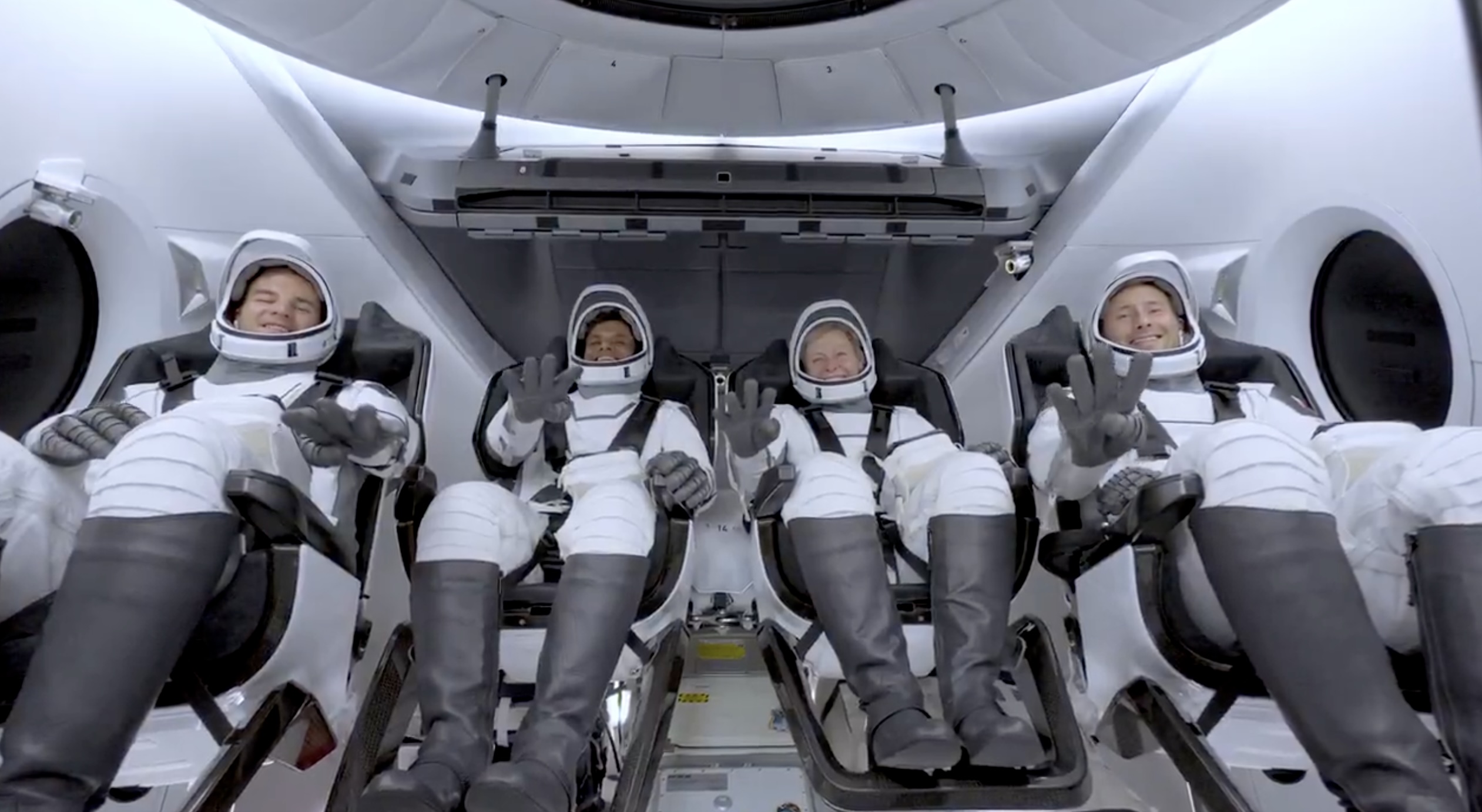
SpaceX launched the Falcon 9 rocket kickstarting Axiom Space’s Ax-4 mission to the International Space Station (ISS). Axiom’s Ax-4 mission is led by a historic international crew and lifted off from Kennedy Space Center’s Launch Complex 39A at 2:31 a.m. ET on June 25, 2025.
The Ax-4 crew is set to dock with the ISS around 7 a.m. ET on Thursday, June 26, 2025. Axiom Space, a Houston-based commercial space company, coordinated the mission with SpaceX for transportation and NASA for ISS access, with support from the European Space Agency and the astronauts’ governments.
The Ax-4 mission marks a milestone in global space collaboration. The Ax-4 crew, commanded by U.S. astronaut Peggy Whitson, includes Shubhanshu Shukla from India as the pilot, alongside mission specialists Sławosz Uznański-Wiśniewski from Poland and Tibor Kapu from Hungary.
“The trip marks the return to human spaceflight for those countries — their first government-sponsored flights in more than 40 years,” Axiom noted.
Shukla’s participation aligns with India’s Gaganyaan program planned for 2027. He is the first Indian astronaut to visit the ISS since Rakesh Sharma in 1984.
Axiom’s Ax-4 mission marks SpaceX’s 18th human spaceflight. The mission employs a Crew Dragon capsule atop a Falcon 9 rocket, designed with a launch escape system and “two-fault tolerant” for enhanced safety. The Axiom mission faced a few delays due to weather, a Falcon 9 leak, and an ISS Zvezda module leak investigation by NASA and Roscosmos before the recent successful launch.
As the crew prepares to execute its scientific objectives, SpaceX’s Ax-4 mission paves the way for a new era of inclusive space research, inspiring future generations and solidifying collaborative ties in the cosmos. During the Ax-4 crew’s 14-day stay in the ISS, the astronauts will conduct nearly 60 experiments.
“We’ll be conducting research that spans biology, material, and physical sciences as well as technology demonstrations,” said Whitson. “We’ll also be engaging with students around the world, sharing our experience and inspiring the next generation of explorers.”
SpaceX’s Ax-4 mission highlights Axiom’s role in advancing commercial spaceflight and fostering international partnerships. The mission strengthens global space exploration efforts by enabling historic spaceflight returns for India, Poland, and Hungary.
News
Starlink Cellular’s T-Mobile service to grow with third-party app data
From Oct 2025, T-Satellite will enable third-party apps in dead zones! WhatsApp, X, AccuWeather + more coming soon.
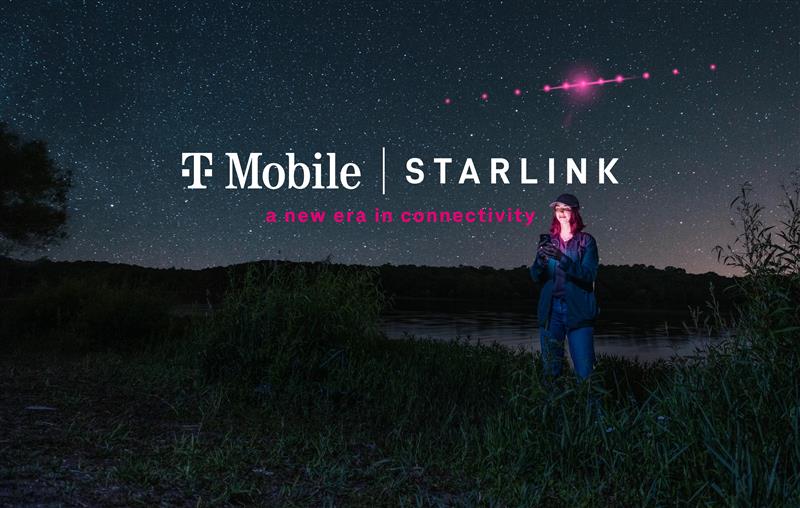
Starlink Cellular’s T-Mobile service will expand with third-party app data support starting in October, enhancing connectivity in cellular dead zones.
T-Mobile’s T-Satellite, supported by Starlink, launches officially on July 23. Following its launch, T-Mobile’s Starlink Cellular service will enable data access for third-party apps like WhatsApp, X, Google, Apple, AccuWeather, and AllTrails on October 1, 2025.
T-Mobile’s Starlink Cellular is currently in free beta. T-Satellite will add MMS support for Android phones on July 23, with iPhone support to follow. MMS support allows users to send images and audio clips alongside texts. By October, T-Mobile will extend emergency texting to all mobile users with compatible phones, beyond just T-Mobile customers, building on its existing 911 texting capability. The carrier also provides developer tools to help app makers integrate their software with T-Satellite’s data service, with plans to grow the supported app list.
T-Mobile announced these updates during an event celebrating an Ookla award naming it the best U.S. phone network, a remarkable turnaround from its last-place ranking a decade ago.
“We not only dream about going from worst to best, we actually do it. We’re a good two years ahead of Verizon and AT&T, and I believe that lead is going to grow,” said T-Mobile’s Chief Operating Officer Srini Gopalan.
T-Mobile unveiled two promotions for its Starlink Cellular services to attract new subscribers. A free DoorDash DashPass membership, valued at $10/month, will be included with popular plans like Experience Beyond and Experience More, offering reduced delivery and service fees. Meanwhile, the Easy Upgrade promotion targets Verizon customers by paying off their phone balances and providing flagship devices like the iPhone 16, Galaxy S25, or Pixel 9.
T-Mobile’s collaboration with SpaceX’s Starlink Cellular leverages orbiting satellites to deliver connectivity where traditional networks fail, particularly in remote areas. Supporting third-party apps underscores T-Mobile’s commitment to enhancing user experiences through innovative partnerships. As T-Satellite’s capabilities grow, including broader app integration and emergency access, T-Mobile is poised to strengthen its lead in the U.S. wireless market.
By combining Starlink’s satellite technology with strategic promotions, T-Mobile is redefining mobile connectivity. The upcoming third-party app data support and official T-Satellite launch mark a significant step toward seamless communication, positioning T-Mobile as a trailblazer in next-generation wireless services.
News
Starlink expansion into Vietnam targets the healthcare sector
Starlink aims to deliver reliable internet to Vietnam’s remote clinics, enabling telehealth and data sharing.

SpaceX’s Starlink expansion into Vietnam targets its healthcare sector. Through Starlink, SpaceX seeks to drive digital transformation in Vietnam.
On June 18, a SpaceX delegation met with Vietnam’s Ministry of Health (MoH) in Hanoi. SpaceX’s delegation was led by Andrew Matlock, Director of Enterprise Sales, and the discussions focused on enhancing connectivity for hospitals and clinics in Vietnam’s remote areas.
Deputy Minister of Health (MoH) Tran Van Thuan emphasized collaboration between SpaceX and Vietnam. Tran stated: “SpaceX should cooperate with the MoH to ensure all hospitals and clinics in remote areas are connected to the StarLink satellite system and share information, plans, and the issues discussed by members of the MoH. The ministry is also ready to provide information and send staff to work with the corporation.”
The MoH assigned its Department of Science, Technology, and Training to work with SpaceX. Starlink Vietnam will also receive support from Vietnam’s Department of International Cooperation. Starlink Vietnam’s agenda includes improving internet connectivity for remote healthcare facilities, developing digital infrastructure for health examinations and remote consultations, and enhancing operational systems.
Vietnam’s health sector is prioritizing IT and digital transformation, focusing on electronic health records, data centers, and remote medical services. However, challenges persist in deploying IT solutions in remote regions, prompting Vietnam to seek partnerships like SpaceX’s.
SpaceX’s Starlink has a proven track record in healthcare. In Rwanda, its services supported 40 health centers, earning praise for improving operations. Similarly, Starlink enabled remote consultations at the UAE’s Emirati field hospital in Gaza, streamlining communication for complex medical cases. These successes highlight Starlink’s potential to transform Vietnam’s healthcare landscape.
On May 20, SpaceX met with Vietnam’s Ministry of Industry and Trade, announcing a $1.5 billion investment to provide broadband internet, particularly in remote, border, and island areas. The first phase includes building 10-15 ground stations across the country. This infrastructure will support Starlink’s healthcare initiatives by ensuring reliable connectivity.
Starlink’s expansion in Vietnam aligns with the country’s push for digital transformation, as outlined by the MoH. By leveraging its satellite internet expertise, SpaceX aims to bridge connectivity gaps, enabling advanced healthcare services in underserved regions. This collaboration could redefine Vietnam’s healthcare infrastructure, positioning Starlink as a key player in the nation’s digital future.
-

 Elon Musk1 week ago
Elon Musk1 week agoTesla investors will be shocked by Jim Cramer’s latest assessment
-

 News2 weeks ago
News2 weeks agoTesla Robotaxi’s biggest challenge seems to be this one thing
-

 News2 weeks ago
News2 weeks agoWatch the first true Tesla Robotaxi intervention by safety monitor
-

 Elon Musk1 week ago
Elon Musk1 week agoA Tesla just delivered itself to a customer autonomously, Elon Musk confirms
-

 News2 weeks ago
News2 weeks agoTesla Robotaxi rollout proves that Elon Musk still delivers, even if it’s late
-

 Elon Musk2 weeks ago
Elon Musk2 weeks agoElon Musk confirms Tesla Optimus V3 already uses Grok voice AI
-

 Elon Musk2 weeks ago
Elon Musk2 weeks agoxAI welcomes Memphis pollution results, environmental groups push back
-

 Elon Musk2 weeks ago
Elon Musk2 weeks agoElon Musk commends Tesla team on successful Robotaxi launch

